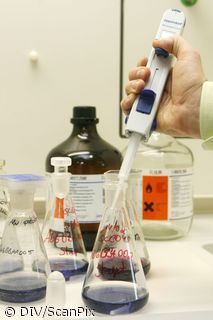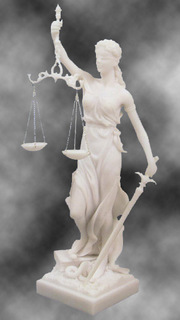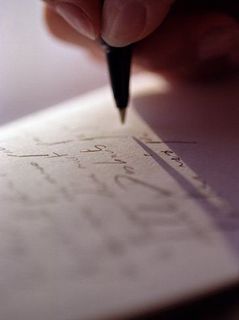CERN's New Particle Accelerator Promises Window on Big Bang
Published:
25 July 2004 y., Sunday
Scientists probing something as big as the origins of the universe sometimes need equipment to match. At the European nuclear research center CERN in Geneva, they're building the most powerful particle accelerator ever. The Large Hadron Collider, as it's called, is expected be able to recreate the conditions that existed at the time of the Big Bang, when the universe was born. Scientists say they hope the new tool will help them unravel the mysteries of matter and energy, and confirm or demolish existing theories.
Contrary to what its name implies, the Big Bang was not necessarily an explosion. Scientists consider the Big Bang to be more of a marker to note that the universe had a beginning. It is the moment in which the universe, space and time were created. CERN Physicist Richard Jacobsson says scientists do not know why or how the Big Bang occurred. But big particle accelerators such as the Large Hadron Collider help them to understand the process.
When the Large Hadron Collider (LHC) is completed in 2007, the superconducting magnets in the machine will operate at 271 degrees, just above absolute zero. However, Mr. Jacobsson says that the temperature created in the proton-proton collisions will be one billion times hotter than at the center of the sun.
Some 6,500 scientists from more than 80 countries currently collaborate on hundreds of ongoing experiments at CERN. The world's biggest particle physics laboratory is celebrating its 50th anniversary this year.
Šaltinis:
voanews.com
Copying, publishing, announcing any information from the News.lt portal without written permission of News.lt editorial office is prohibited.
The most popular articles

The European Commission announced today the award of three of the six contracts for the procurement of Galileo’s initial operational capability.
more »
 New application rules and accounting procedures for EU research funding.
more »
New application rules and accounting procedures for EU research funding.
more »
 NASA's Solar Dynamics Observatory has produced never-seen-before high-resolution pictures of the sun.
more »
NASA's Solar Dynamics Observatory has produced never-seen-before high-resolution pictures of the sun.
more »
 The King Tut exhibition opens in New York's Times Square.
more »
The King Tut exhibition opens in New York's Times Square.
more »
 On 16 April the European Economic and Social Committee will host a day-long mock plenary session attended by over one hundred secondary school students and their teachers from the 27 EU countries.
more »
On 16 April the European Economic and Social Committee will host a day-long mock plenary session attended by over one hundred secondary school students and their teachers from the 27 EU countries.
more »
 It's one thing to agree on new laws, implementing them is another, often complicated, issue. Until now the European Commission's implementation of much EU legislation was overseen by committees of Member State experts, through the so-called “comitology” system, which was criticised for its lack of transparency and democratic oversight.
more »
It's one thing to agree on new laws, implementing them is another, often complicated, issue. Until now the European Commission's implementation of much EU legislation was overseen by committees of Member State experts, through the so-called “comitology” system, which was criticised for its lack of transparency and democratic oversight.
more »
 Monday was supposed to be the first day of school in Haiti. At the Lycee Marie-Jeanne public school in Port-au-Prince, students turn up with freshly-pressed uniforms and buffed shoes only to be turned away by their principal.
more »
Monday was supposed to be the first day of school in Haiti. At the Lycee Marie-Jeanne public school in Port-au-Prince, students turn up with freshly-pressed uniforms and buffed shoes only to be turned away by their principal.
more »
 The 27 winners of the EU’s 2009 translation competition receive awards for their language skills.
more »
The 27 winners of the EU’s 2009 translation competition receive awards for their language skills.
more »
 The 27 national winners of the European Charlemagne Youth Prize 2010 have been named.
more »
The 27 national winners of the European Charlemagne Youth Prize 2010 have been named.
more »
 In a classroom of seventh-grade students divided equally between girls and boys, Tim Sophanny, a 30-year-old teacher at Sre Preah Secondary School in Keo Seima district of Mondulkiri, is writing the lesson on a dark-green board with one hand while covering her nose with the other to avoid inhaling chalk dust.
more »
In a classroom of seventh-grade students divided equally between girls and boys, Tim Sophanny, a 30-year-old teacher at Sre Preah Secondary School in Keo Seima district of Mondulkiri, is writing the lesson on a dark-green board with one hand while covering her nose with the other to avoid inhaling chalk dust.
more »
 The European Commission’s Budget Directorate-General is asking pupils aged between 15 and 19 from Germany and Austria to have a close look at the EU budget and submit their findings in the form of a report or short video.
more »
The European Commission’s Budget Directorate-General is asking pupils aged between 15 and 19 from Germany and Austria to have a close look at the EU budget and submit their findings in the form of a report or short video.
more »